 Early this summer, while perusing my local suburban library, I came upon a non-fiction book about baseball cards titled Cardboard Gods: An All-American Tale Told Through Baseball Cards by Josh Wilker . I hadn't read a book about baseball since about 1981 (and that had been the instruction manual that came with my Johnny Bench Batter-Up) and I wasn't expecting much, but when I took Wilker's book home and began reading, it was instant magic. To use a baseball analogy, reading Cardboard Gods was like watching a little known big league hurler pitch a near perfect game. From the first few pitches you realize that this guy has his good stuff. His curve ball is biting, his fastball has a sharp giddy-up, he is in command of the plate, pinpoint control. And as the game goes on, he gets stronger, more confident—perhaps a lapse in judgment or a missed pitch here and there, but nothing to get him into trouble. By the seventh inning you are cheering him on with all you've got in total appreciation of being able to witness the greatness of a masterly executed shutout or no-hitter even.
Early this summer, while perusing my local suburban library, I came upon a non-fiction book about baseball cards titled Cardboard Gods: An All-American Tale Told Through Baseball Cards by Josh Wilker . I hadn't read a book about baseball since about 1981 (and that had been the instruction manual that came with my Johnny Bench Batter-Up) and I wasn't expecting much, but when I took Wilker's book home and began reading, it was instant magic. To use a baseball analogy, reading Cardboard Gods was like watching a little known big league hurler pitch a near perfect game. From the first few pitches you realize that this guy has his good stuff. His curve ball is biting, his fastball has a sharp giddy-up, he is in command of the plate, pinpoint control. And as the game goes on, he gets stronger, more confident—perhaps a lapse in judgment or a missed pitch here and there, but nothing to get him into trouble. By the seventh inning you are cheering him on with all you've got in total appreciation of being able to witness the greatness of a masterly executed shutout or no-hitter even. 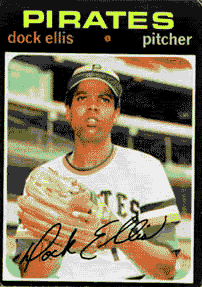 By the final out Cardboard Gods may not have been a perfect game for everyone who reads it, but it was an absolutely perfect read for me (not unlike the Doc Ellis no-hitter that Wilker's references). Of course part of the reason this book resonated with me certainly has something to do with the fact that author Josh Wilker is the same age as me, that 95% of the baseball cards he mentions were ones that I owned and coveted, that he grew up in an alternative family situation that involved moving from house to house frequently, he had a step-father, he had a brother who is close in age, and that both Wilkers and I were UPS package handlers in the early 90s.
By the final out Cardboard Gods may not have been a perfect game for everyone who reads it, but it was an absolutely perfect read for me (not unlike the Doc Ellis no-hitter that Wilker's references). Of course part of the reason this book resonated with me certainly has something to do with the fact that author Josh Wilker is the same age as me, that 95% of the baseball cards he mentions were ones that I owned and coveted, that he grew up in an alternative family situation that involved moving from house to house frequently, he had a step-father, he had a brother who is close in age, and that both Wilkers and I were UPS package handlers in the early 90s.But there are plenty of aspects of Cardboard Gods that anyone can appreciate, for instance his brilliant use of a “device of continuity” that ties the book together. Wilker starts each chapter with a reproduction of a Topps baseball card circa 1974 to 1980 and then goes on to connect an aspect of his childhood (and/or an aspect of American culture and/or the nature of mankind) with an aspect of that card. Wilker’s observations about the poses, gestures and facial expressions of the ball players captured on the cards were especially brilliant as he insightfully wove these snapshots into the parallel narrative of his childhood in 1970s America. One great example of this was the side-by-side chapters in which Wilker juxtaposes a 1978 Bo McLaughlin card with a 1976 Steve Garvey card:
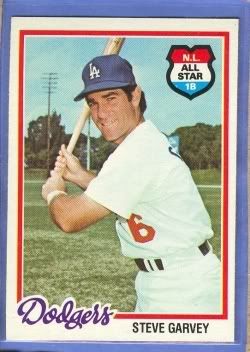 “Everybody was going from before to after. Everybody had a look on their face like they’d just caught a whiff of a nearby landfill. Everybody was ambivalent about the length of their hair…Everybody went back and forth from having a regular job to laying on rusty lawn furniture all afternoon unemployed…Everybody began wondering how to file for divorce…Everybody was Bo McLaughlin…Everybody except Steve Garvey.”
“Everybody was going from before to after. Everybody had a look on their face like they’d just caught a whiff of a nearby landfill. Everybody was ambivalent about the length of their hair…Everybody went back and forth from having a regular job to laying on rusty lawn furniture all afternoon unemployed…Everybody began wondering how to file for divorce…Everybody was Bo McLaughlin…Everybody except Steve Garvey.” As Homer Simpson would say "It's funny cuz its true!" Also true, almost alarmingly so, was how similar Wilker’s sense of these player’s essence (as obtained from their cards) were to my sense of these player’s essence (also gleaned exlusivley from their card), and the sense that thousands of other kids growing up in the 70s must have gotten from these cards as well. Wilker’s was right on the money-- from his ruminations on the 1976 Victory Leaders card with Jim Palmer and Randy Jones to the old school admiration triggered by the 1978 Wilbur Wood card and so on and so forth.
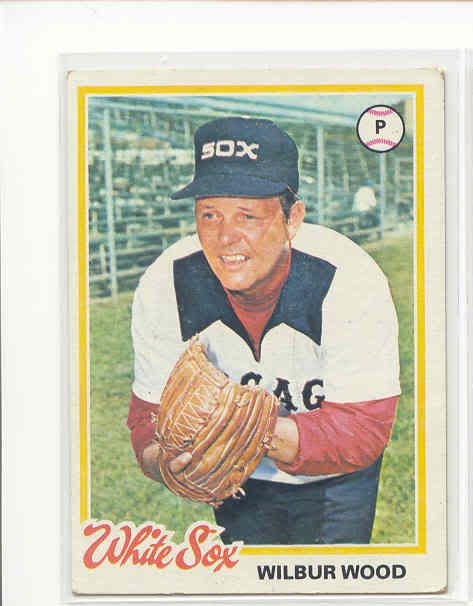 I was also entertained by the way that Wilker used baseball cards to say so much about people, about the trials and tribulations of childhood and about 1970s America all at the same time. As I flipped the pages from chapter to chapter, each revealing another lost treasured image of the Cardboard Gods from my childhood, I began to notice a sense of exhiliration—an exhileration that was similar to the exhiliration that (just like Wilker explained having as a kid) I also experienced in my youth every time I bought a new pack of baseball cards and then obsessively thumbed from one Cardboard God to the next. Wilker even pays homage to that lost experience of exhiliration (common to nearly every boy who ever bought a pack of baseball cards in the 70s) by opening the book with an offering (in image at least) of one of those rock hard miniature slabs of pink sugar/bubble gum that came inside every pack of Topps baseball cards from that era. Even the cover of Cardboard Gods is cleverly designed to replicate the packaging of a pack of baseball cards from the 70s era. This all resonated with me (a thrift store/garage sale junkie anyway) as Cardboard Gods displayed a rich understanding of that certain 1970s Americana vibe that only a kid growing up in that era could truly understand.
I was also entertained by the way that Wilker used baseball cards to say so much about people, about the trials and tribulations of childhood and about 1970s America all at the same time. As I flipped the pages from chapter to chapter, each revealing another lost treasured image of the Cardboard Gods from my childhood, I began to notice a sense of exhiliration—an exhileration that was similar to the exhiliration that (just like Wilker explained having as a kid) I also experienced in my youth every time I bought a new pack of baseball cards and then obsessively thumbed from one Cardboard God to the next. Wilker even pays homage to that lost experience of exhiliration (common to nearly every boy who ever bought a pack of baseball cards in the 70s) by opening the book with an offering (in image at least) of one of those rock hard miniature slabs of pink sugar/bubble gum that came inside every pack of Topps baseball cards from that era. Even the cover of Cardboard Gods is cleverly designed to replicate the packaging of a pack of baseball cards from the 70s era. This all resonated with me (a thrift store/garage sale junkie anyway) as Cardboard Gods displayed a rich understanding of that certain 1970s Americana vibe that only a kid growing up in that era could truly understand. I imagine that a lot of guys in their 40s have experiences of wandering up to the storage area above their parent’s garage some weekend afternoon, looking for a tool or something, and stumbling upon a stack of shoeboxes that housed the thousands of baseballs cards that they once collected as a kid. Reading Cardboard Gods was like opening up those boxes and being bombarded with those long lost memories, and for this alone it deserves:
5 Wagemann Heads
---
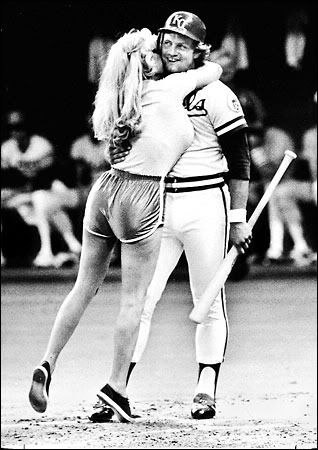 I don’t know what happened during the 1980s that ruined the two great passions of my childhood life—major league baseball and classic rock—but somehow shortly after I blossomed into a teenager my passion for each of them slowly and sorrowfully fizzled. I had just turned 13 years old in 1981 when the Major League's players went on strike and I immediately had this very raw “screw them” epiphany. By 1984 I had no real interest in major league baseball what so ever. I had stopped collecting baseball cards and obsessing over the league leaders and box scores in the Sunday paper, I couldn’t sit through an inning of watching a ball game on TV anymore and I soon found myself just channel surfing right past the highlight reels on ESPN. And on the rare occasion that I actually found myself at a major league ball game, I’d sit there interested in anything but the actual game; the guy selling peanuts, some large breasted woman three rows up, a cloud… Even when I consciously tried to focus on the game, after two or three pitches, I’d just think to myself, “What’s the frickin point?” Not just the point of watching the game, but what’s the frickin point of major league baseball in general? The broadcasters regurgitating one cliché after another, the players mechanically steroiding about like robots. Even the fans seemed ridiculous, with their puppet-like reactions of anger and/or rehearsed celebrations. Maybe I should have just blamed it all on Reagan and let it go at that.
I don’t know what happened during the 1980s that ruined the two great passions of my childhood life—major league baseball and classic rock—but somehow shortly after I blossomed into a teenager my passion for each of them slowly and sorrowfully fizzled. I had just turned 13 years old in 1981 when the Major League's players went on strike and I immediately had this very raw “screw them” epiphany. By 1984 I had no real interest in major league baseball what so ever. I had stopped collecting baseball cards and obsessing over the league leaders and box scores in the Sunday paper, I couldn’t sit through an inning of watching a ball game on TV anymore and I soon found myself just channel surfing right past the highlight reels on ESPN. And on the rare occasion that I actually found myself at a major league ball game, I’d sit there interested in anything but the actual game; the guy selling peanuts, some large breasted woman three rows up, a cloud… Even when I consciously tried to focus on the game, after two or three pitches, I’d just think to myself, “What’s the frickin point?” Not just the point of watching the game, but what’s the frickin point of major league baseball in general? The broadcasters regurgitating one cliché after another, the players mechanically steroiding about like robots. Even the fans seemed ridiculous, with their puppet-like reactions of anger and/or rehearsed celebrations. Maybe I should have just blamed it all on Reagan and let it go at that. But then, some 20 plus years later, I came upon Wilker's Cardboard God's which had so completely awakened my long lost obsession for baseball cards and the game of baseball in general that I couldn't help but wonder, “What the fuck happened all those years ago?” How could something I once lived and breathed and cared so much about become totally meaningless and actually annoying to me? Had major league baseball really changed that much? Or was it me? Had I changed that much? I mean what was it about big league baseball that I had once thought was so frickin great?
To get the answers to these questions and more I immediately sought other non-fiction books about baseball. My hope was that these books would not only sustain the nostalgia, but actually help me figure out why I had ever lost my love for baseball and baseball cards to begin with...
 The first book I found, Big Hair and Plastic Grass by Dan Epstein, was prominently displayed in the New Releases section of my local library - the cover of which promised a treasures trove of interesting anecdotes, funny details and witty insight. Besides great images of Oscar Gamble and Mark "the bird" Fydrich, the cover also sported a retro design that instantly conjures up the distinct 1970s vibe. But even as the title and sub-title promised a funky ride through the baseball landscape of the swingingest decade, I proceeded with caution for as I’ve been burned before by cover promises and stylized illustrations. Then, as always, I look to the book’s back jacket to get an image of author. There I see Epstein - dressed as hipster wannabe, complete with 70s side burns, a height-ashbury jean jacket, and a coolier-than-tho smirk. Then taking a bite out of his introduction, at first it seems as though Epstein might actually delivery on his big promises when he acknowledges the disparity between Major League baseball in the 1970s and Major League baseball post-70s when he writes:
The first book I found, Big Hair and Plastic Grass by Dan Epstein, was prominently displayed in the New Releases section of my local library - the cover of which promised a treasures trove of interesting anecdotes, funny details and witty insight. Besides great images of Oscar Gamble and Mark "the bird" Fydrich, the cover also sported a retro design that instantly conjures up the distinct 1970s vibe. But even as the title and sub-title promised a funky ride through the baseball landscape of the swingingest decade, I proceeded with caution for as I’ve been burned before by cover promises and stylized illustrations. Then, as always, I look to the book’s back jacket to get an image of author. There I see Epstein - dressed as hipster wannabe, complete with 70s side burns, a height-ashbury jean jacket, and a coolier-than-tho smirk. Then taking a bite out of his introduction, at first it seems as though Epstein might actually delivery on his big promises when he acknowledges the disparity between Major League baseball in the 1970s and Major League baseball post-70s when he writes:  “In recent years, for example, the Atlanta Braves have held a ‘Faith Day’ promotion, featuring performances by Christian rock bands and testimonials from Braves players about how Jesus turned their lives around. This is same team that, back in 1977, drew more than 27,000 fans for a ‘Wet T-Shirt Night’ competition.”
“In recent years, for example, the Atlanta Braves have held a ‘Faith Day’ promotion, featuring performances by Christian rock bands and testimonials from Braves players about how Jesus turned their lives around. This is same team that, back in 1977, drew more than 27,000 fans for a ‘Wet T-Shirt Night’ competition.” Well shit, this might just be the book I've been hoping for. Unfortuneately as I read on, it didnt take long to realize that this book was more style than substance. The large part of Epstein's text is year by year summaries of how teams won their divisions, who the stat leaders on the teams were, with a few seasonal and individual game high lights mixed in, which all goes to read like a 3rd year college journalism student covering the local college team. At the begining of each chapter Epstein tried very hard to shoe horn pop culture into the baseball landscape. I'm not sure what the point of that was other than try to add some kind of context but it came off as Epstein wanting to be considered an expert on 70s culture so that he might be asked by the producers of VH1's "I heart the 70s" so that he could contribute witty comments about slinkys or moon boots.
About halfway through, I began skipping around a bit. Then a bit more. There were some interesting narrative possibilities, but Epstein only touched the surface and gave the cliche wikipedia-ish treatment to them, and not much else.
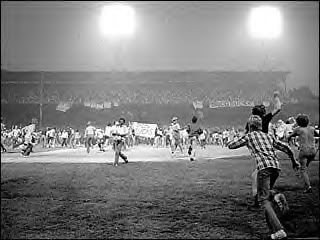 By the time I got to 1978 I was looking at maybe two words per paragraph until I finally just gave up. The most disappointing thing here, is that I DO believe that the subject matter is worthy of a book. A good book even. Possibly something in the tradition of an oral telling along the lines of Loose Balls (about the American Basketball Association) where we have the stories told directly to us from the mouths of the players, owners, coaches, managers, umps, anouncers, etc themselves. Overall I give it 3 out of 5 WagemannHeads. I think Epstein could have done more with the wealth of material than what is here.
By the time I got to 1978 I was looking at maybe two words per paragraph until I finally just gave up. The most disappointing thing here, is that I DO believe that the subject matter is worthy of a book. A good book even. Possibly something in the tradition of an oral telling along the lines of Loose Balls (about the American Basketball Association) where we have the stories told directly to us from the mouths of the players, owners, coaches, managers, umps, anouncers, etc themselves. Overall I give it 3 out of 5 WagemannHeads. I think Epstein could have done more with the wealth of material than what is here.
Finally two and a half years later, my answer comes:
 The writing for The Bird: The Life and Legacy of Mark Fidrych by Doug Wilson isn't the deepest, in fact sometimes it seems like its more geared toward an audience of high school or college age kids at times - but that didn't really bother me. I'm not a baseball romantic. But I was in 1976. I ate, slept and shit baseball. And Mark Fidrych played the game as if he did too. And how could an 8 year old kid not be drawn to the Bird? His perma-grin, his love of guitar Rock music, his bushy unkempt hair, his wild antics on the mound and his joy in the game. He was like a big kid himself. And it was as if his sheer love of the game, his passion for baseball, led to his success - which in turn inspired young kids like me to believe that all you needed to make it to the big leagues was simply to love the game, play it with every fiber of your being every second of the day.
The writing for The Bird: The Life and Legacy of Mark Fidrych by Doug Wilson isn't the deepest, in fact sometimes it seems like its more geared toward an audience of high school or college age kids at times - but that didn't really bother me. I'm not a baseball romantic. But I was in 1976. I ate, slept and shit baseball. And Mark Fidrych played the game as if he did too. And how could an 8 year old kid not be drawn to the Bird? His perma-grin, his love of guitar Rock music, his bushy unkempt hair, his wild antics on the mound and his joy in the game. He was like a big kid himself. And it was as if his sheer love of the game, his passion for baseball, led to his success - which in turn inspired young kids like me to believe that all you needed to make it to the big leagues was simply to love the game, play it with every fiber of your being every second of the day.And then...it all changed. A silly injury that led to a sadly drawn out exit. Something was missing from baseball without Mark 'The Bird' Fidrych in the Major Leagues. The game had been changing with free agency and corporatization. Baseball players, who previously had to sell insurance in the off season to make ends meet, were become multi-millionaire brandnames represented by narrow-eyed agents who wrangled endorsements for them and spinning the stories of their clients personal lives that was splattered all over the Sports sections than they did enjoying the game.
Would baseball had steered clear of all these evils had Fidrych stayed in the game? No, of course not. But for one brilliant summer in 1976 it seemed possible. In fact whenever the Bird took the mound, for that one brief moment, almost anything seemed possible.
View all my reviews ----
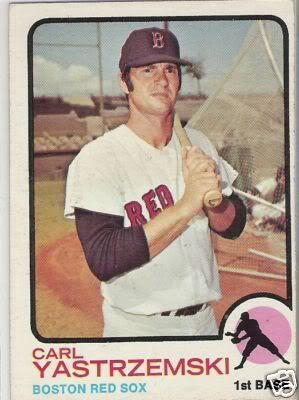 Even though I lost interest in major league baseball after the strike of ’81, I still enjoyed playing baseball. In high school I played two years on a team that finished first place in a conference that showcased the talents of future major league ball players like Jim Thome, Joe Girardi. In 1984 during my sophomore year I hit .375 and led the conference in sacrifices while finishing second on our team in stolen bases. At 5 foot 10 and 140 pounds I didn’t have the power to knock it out of the park, but I had an instinctual skill for the cat and mouse dueling that goes on against an opposing pitcher in the batter’s box (and the opposing team while on the base paths). To this day I still love to play the game. But the major league’s still do nothing for me. I just don’t care. If anything, when I think about it, I’m actually a bit annoyed by the fact that major league ball players get paid multi-millions to run around in their pajamas and play a game that nearly any 10 year old kid would give his left nad to do for free. And it’s not necessarily the players that annoy me. It’s the entire system that gets on my nerves. Why is it that our culture puts so much value on this—let’s face it—meaningless game, while school teachers, nurses, garbage men and millions of other people who actually do something for the betterment of our society get didily squat on a popcicle stick? Why are people so frickin desperate for baseball? And basketball? And hockey and good lord Nascar—at a time when gas is $3 a gallon and our troops are dying in the middle east over oil.
Even though I lost interest in major league baseball after the strike of ’81, I still enjoyed playing baseball. In high school I played two years on a team that finished first place in a conference that showcased the talents of future major league ball players like Jim Thome, Joe Girardi. In 1984 during my sophomore year I hit .375 and led the conference in sacrifices while finishing second on our team in stolen bases. At 5 foot 10 and 140 pounds I didn’t have the power to knock it out of the park, but I had an instinctual skill for the cat and mouse dueling that goes on against an opposing pitcher in the batter’s box (and the opposing team while on the base paths). To this day I still love to play the game. But the major league’s still do nothing for me. I just don’t care. If anything, when I think about it, I’m actually a bit annoyed by the fact that major league ball players get paid multi-millions to run around in their pajamas and play a game that nearly any 10 year old kid would give his left nad to do for free. And it’s not necessarily the players that annoy me. It’s the entire system that gets on my nerves. Why is it that our culture puts so much value on this—let’s face it—meaningless game, while school teachers, nurses, garbage men and millions of other people who actually do something for the betterment of our society get didily squat on a popcicle stick? Why are people so frickin desperate for baseball? And basketball? And hockey and good lord Nascar—at a time when gas is $3 a gallon and our troops are dying in the middle east over oil. So on that note, just let me say this: "Go Steelers!!!" I know, I'm a hypacrit. I watch NFL football religiously every Sunday that I can--which ends up only being about 12 sundays a year if I'm lucky. But I've never contributed monitarily to the NFL in anyway what so ever. I don't buy jerseys or flair, I've never bought a ticket to a game. I even put the commercials on mute when they come on. But I do watch and I do talk about the games and I do pretend to be Big Ben when I'm playing football in my bedroom with my 4 year old son and 2 year old daughter. So, I am contributing to the perpetuality of the NFL's existence in some small way. And by extension I am contributing to the perpetuality of the dispicable corporate consumer culture that is more influencial on our society than any religion could ever be. But what is my alternative? To stick my head in the ground and become a grumpy old hermit? There are sands in the pop culture beach that are beautiful.
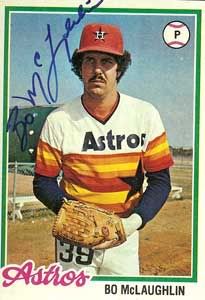
No comments:
Post a Comment